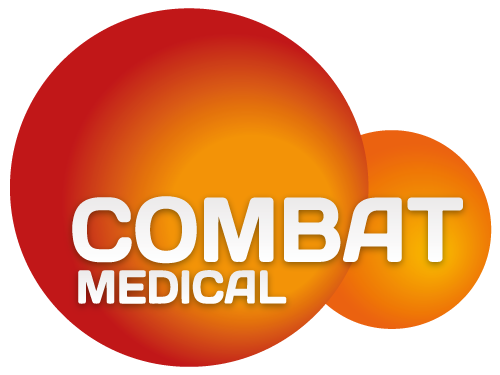New HIVEC®-HEAT Phase 3 trial for bladder cancer could be a game-changer for
patients with BCG-unresponsive nonmuscle-invasive bladder cancer
Combat Medical has entered into partnership with the University of Leicester, England, to run a
phase 3 trial of its HIVEC® treatment for BCG-unresponsive nonmuscle-invasive bladder cancer
(NMIBC) as an alternative to radical cystectomy.
HIVEC-HEAT – HIVEC® (Hyperthermic intravesical mitomycin mEdac) for pAtients with BCG-
unresponsive nonmuscle-invasive bladder cancer Trial – will be a multi-centre, single-arm
interventional trial across 25 NHS hospitals in the United Kingdom (UK). Currently awaiting MRHA
approval, and already reviewed by the FDA, it is expected to start recruiting the first of 238 patients
in September, with a two-year recruitment period and two-year follow-up.
Funded by Combat Medical, adopted by the National Institute for Health and Care Research and
sponsored by the University of Leicester, the investigator-initiated study will be led by Professor
Leyshon Griffiths, Associate Professor/Honorary Consultant Urological Surgeon at the University of
Leicester & University Hospitals of Leicester NHS Trust.
Professor Griffiths said: “Why should eligible patients in the UK consider joining the HIVEC-HEAT
trial? Firstly, HIVEC® treatments will recirculate heated mitomycin from medac in participants’
bladders at double the concentration (1 mg/mL) compared with standard HIVEC® practice (0.5
mg/mL). Secondly, participants will receive up to 15 HIVEC® treatments over one year – many
patients receive less out of trial in UK centres.”
Combat Medical CEO Edward Bruce-White commented: “HIVEC®’s use as a safe and well-tolerated
bladder-sparing alternative to radical cystectomy in BCG-unresponsive high-risk NMIBC has already
been demonstrated in a series of smaller prospective and retrospective studies. 1 , 2 A recent analysis
has also shown it to be a highly cost-effective therapeutic option, with greater efficacy and at a far
lower cost than the FDA-approved pembrolizumab. 3 With 100,000+ treatments already completed in
more than 40 countries, we are confident this phase 3 trial will prove that HIVEC® will be a game-
changer in the treatment of high-risk, BCG-unresponsive patients, especially at a time of acute BCG
shortages worldwide.”
Some 573,000 patients are diagnosed with bladder cancer every year, 4 and around 70-85% present
1 Pijpers OM et al., Long-term efficacy of hyperthermic intravesical chemotherapy for BCG-unresponsive non-muscle-
invasive bladder cancer. Journal of Urologic Oncology, 2022. Feb; 40(2):62.e13-62.e20. Epub 2021 Aug 30
2 Stemberger A et al., MP54-15: A multicenter study of 2-year outcomes following hyperthermia therapy with mitomycin C
in treating BCG-unresponsive non-muscle-invasive bladder cancer: recirculant hyperthermic intravesical chemotherapy. The Journal ofUrology, 2022. May 1. doi.org/10.1097/JU.0000000000002633.15
3 Rieger C et al., Cost-effectiveness analysis of different treatment modalities in BCG-unresponsive NMIBC. BJU
International, 2024. Mar 16. doi: 10.1111/bju.16332 . Epub ahead of print.
4 Yhang Y et al., The global landscape of bladder cancer incidence and mortality in 2020 and projections to 20240. Journal of
Global Health, 2023. 13 with NMIBC.
5 Current treatment comprises complete resection of visible tumour, with adjuvant BCG
intravesical installation recommended to reduce the risk of recurrence and progression in patients
with high-risk NMIBC.
6 However, tumours recur in at least 40-50% of these patients, with 10-20%
progressing to muscle-invasive or metastatic bladder cancer.
7 The standard of care for BCG-unresponsive patients is radical cystectomy, 4 involving removal of the
bladder together with nearby lymph nodes, and often part of the bowel, the prostate gland and
seminal vesicles in males, and the womb and fallopian tubes in females. It is curative in 80-90% if
performed prior to progression to muscle-invasive bladder cancer. 8 However, radical cystectomy
may not be a suitable treatment alternative as it is associated with a higher degree of morbidity and
mortality, while some patients refuse it on quality-of-life grounds.
For more details, contact:
Guy Cooper, Sales and Marketing Director, Combat Medical
Email: grc@combat-medical.com
About Combat Medical
Combat Medical Ltd is a UK-based medical device company with a platform technology for heating
and circulating chemotherapy for bladder cancer and cancers of the abdomen and peritoneum.
With over 100,000 treatments completed in more than 40 countries, Combat leads the global
development and clinical use of device-assisted therapies to treat many common cancers, including
bladder cancer, colorectal cancer, ovarian cancer and pancreatic cancer. With 20+ clinical trials
already published and many more underway, Combat continues to drive and support the research in
this area.
For more information, please visit:
combatcancer.com
youtube.com/combatmedical
http://youtube.com/combatmedical
@HIVEC-HEAT
@CombatCancer
5 Griffiths TL and AoB Cancer, Current perspectives in bladder cancer management. International Journal of Clinical Practice,
- 67(5):435-488
6 EAU guidelines on non-muscle-invasive bladder cancer (TaT1 and CIS). European Urology 2022; available from
https://d56bochluxqnz.cloudfront.net/documents/full-guideline/EAU-Guidelines-on-Non-Muscle-Invasive-Bladder-Cancer-
2022.pdf
7 Witjes JA. Management of BCG failures in superficial bladder cancer: a review. European Urology, 2006. 49(5):790-797
8 Stein JP et al., Radical cystectomy in the treatment of invasive bladder cancer: long-term results in 1,054 patients. Journal
of Clinical Oncology, 2001. 19(3):666-675.

